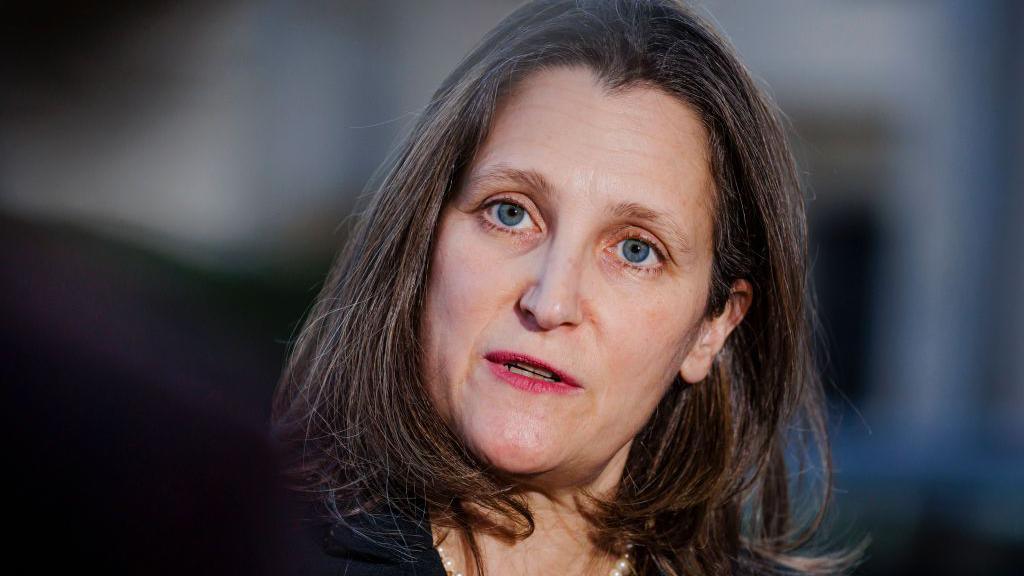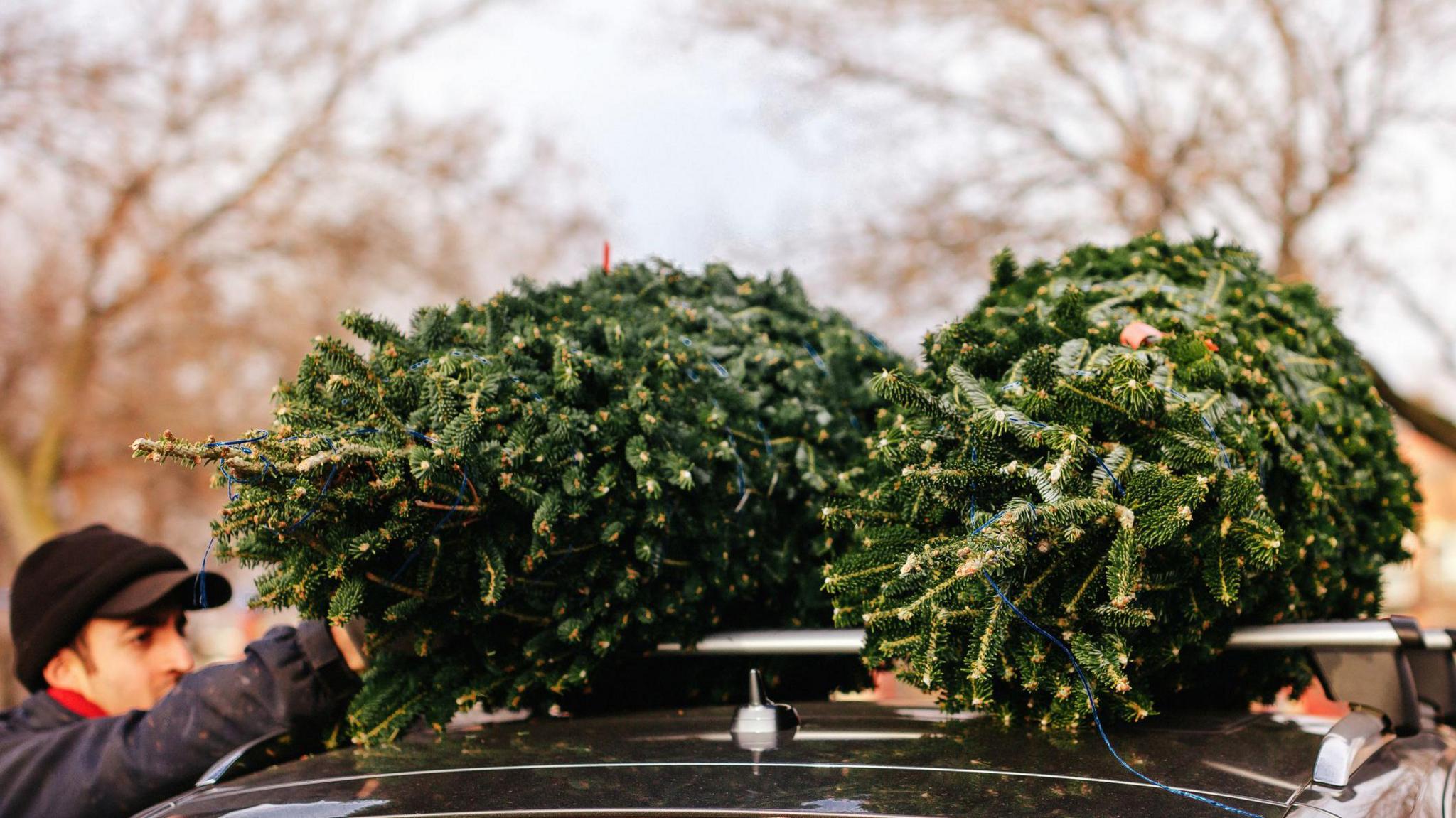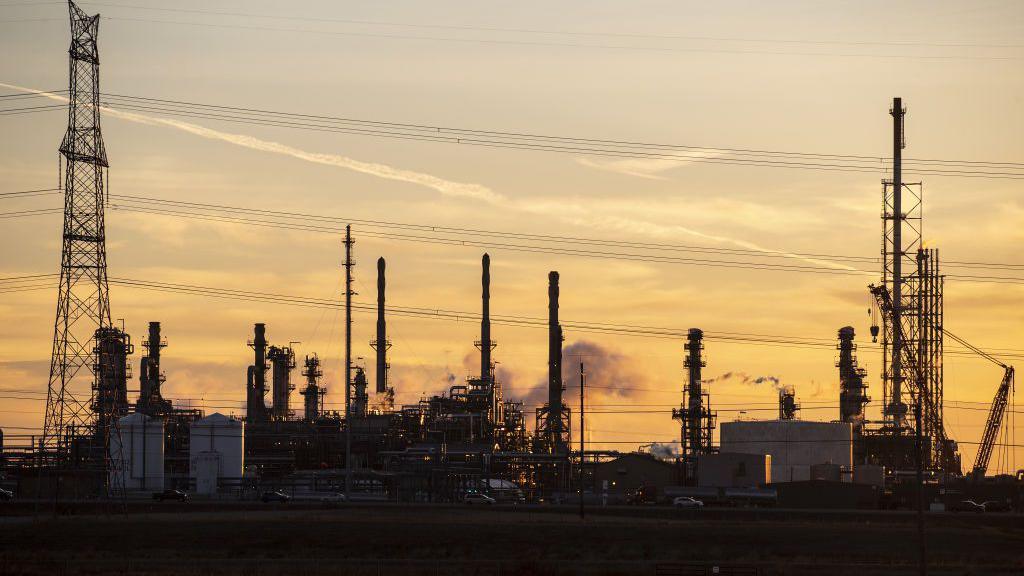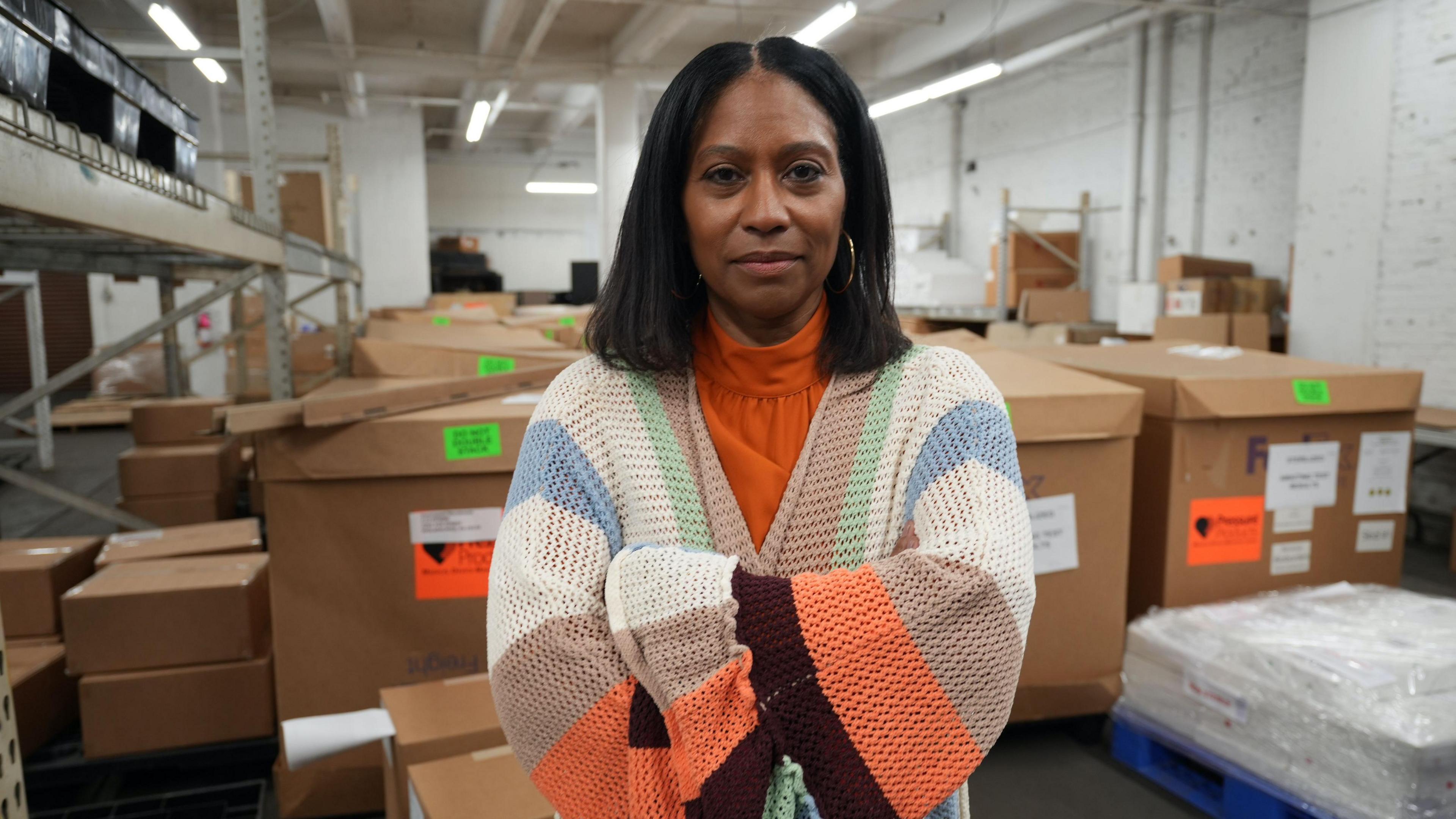Canada's finance minister quits over Trump tariff dispute with Trudeau

Chrystia Freeland resigned from her post as finance minister Monday
- Published
Canada's Finance Minister Chrystia Freeland has resigned from her post, citing disagreements with Prime Minister Justin Trudeau on how to respond to incoming President Donald Trump's threat of tariffs.
She announced her resignation in a letter to Trudeau on Monday, in which she said the two have been "at odds about the best path forward for Canada", and pointed to the "grave challenge" posed by Trump's policy of "aggressive economic nationalism".
Freeland said the decision comes after Trudeau informed her last week that he no longer wanted her to be his government's top economic adviser.
Her resignation came hours before she was due to provide an annual fiscal government update in parliament.
The move may push Trudeau's already shaky minority government to the brink .
After nine years in power, the prime minister has faced growing calls to resign over concerns he is a drag on his party's fortunes. The Liberal leader's approval rate has plummeted from 63% when he was first elected to 28% in June of this year, according to one poll tracker.
Following Freeland's departure on Monday, five siting Liberal MP publicly called on Trudeau to step down.
"Let's put it this way - firing the minister of finance who has served you extremely well is not what I'd call a trustworthy move," Helena Jaczek, an MP from Markham-Stouffville in Ontario, told reporters, before saying that Trudeau should resign.
An emergency Liberal caucus meeting was set for 1700 local time (22:00 GMT).
Within hours of Freeland's announcement, Public Safety Minister Dominic LeBlanc was sworn in as her replacement. LeBlanc, who has been close friends with the prime minister since childhood, is considered one of his most loyal allies.
Trudeau was present at the swearing-in - his first appearance in front of media since Freeland's announcement - but he did not provide any statements. His office and the finance department both did not respond to the BBC's request for comment.
In her publicly-shared resignation letter, Freeland said Canada needs to keep its "fiscal powder dry" to deal with the threat of sweeping tariffs from US President-elect Donald Trump.
She added this means "eschewing costly political gimmicks" that Canada cannot afford.
Trump has promised to impose a levy of 25% on imported Canadian goods, which economists have warned would significantly hurt Canada's economy.
Referencing the tariffs, Freeland called them a "threat" that needs to be taken "extremely seriously".
She added that this means "pushing back against 'America First' economic nationalism" and working with unity in response to these tariff threats.
When the fall economic statement was released on Monday afternoon, it revealed a C$60b deficit ($42bn; £33bn) - far exceeding Freeland's C$40bn target.
She and Trudeau were reportedly also in disagreement over a series of recently-proposed policies by the prime minister designed to address the country's cost-of-living crisis.
Among them is a cheque of C$250 that the government wanted to send to every Canadian earning less than C$150,000 annually. These cheques were expected to cost the federal government a total of C$4.68bn.
Another is a temporary tax break on essential items during the holidays which is anticipated to cost C$1.6bn in lost tax revenue.
Freeland's office had reportedly been concerned about the price of these two policies, saying they are economically unwise at a time when the country's deficit is growing.
The tax holiday has since been approved in the House of Commons, but the C$250-cheques hit a hurdle when the New Democratic Party (NDP) - a centre-left party in parliament - signalled it would not lend its support to the policy unless it is expanded.
A poll by the Angus Reid Institute showed that four out of five Canadians viewed the cheques as a political move, external designed to win public goodwill as Trudeau's popularity plummets.
In response to Freeland's exit, Pierre Poilievre, leader of the opposition Conservative Party of Canada, called for a federal election as soon as possible.
"Everything is spiralling out of control. We simply cannot go on like this," he said, adding that her resignation comes "at the very worst time".
Watch: Trudeau has 'lost control', says opposition leader Pierre Poilievre
NDP leader Jagmeet Singh called on Trudeau to resign. But Singh, whose party has propped up Trudeau's minority government thus far, stopped short of committing to a vote of non-confidence, which would effectively force a federal election.
Freeland, who also holds the position of deputy prime minister, has long been one of Trudeau's closest allies within his Liberal party. She has held the key role of Canada's finance minister since 2020, helping to lead the country through the pandemic and its aftermath.
Other members of the Liberal party's cabinet have since reacted to her resignation.
Minister of Transport Anita Anand described Freeland as a "good friend," and added: "This news has hit me really hard and I'll reserve further comment until I have time to process it."
In a statement, the Business Council of Canada called Freeland's resignation "deeply troubling" and said the concerns that she raises put into question "whose interests the federal government is looking out for".
Canada's public broadcaster CBC reported that Freeland's decision to quit was not expected today, citing a senior federal government source.
Freeland said she intends to stay on as a Liberal member of parliament, and that she will run again in Canada's upcoming election, which must be held on or before October.
Her resignation comes after another cabinet member, housing minister Sean Fraser, announced he will not be seeking re-election, saying he wants to spend more time with his family.
Related topics
- Published21 November 2024

- Published29 November 2024

- Published27 November 2024
